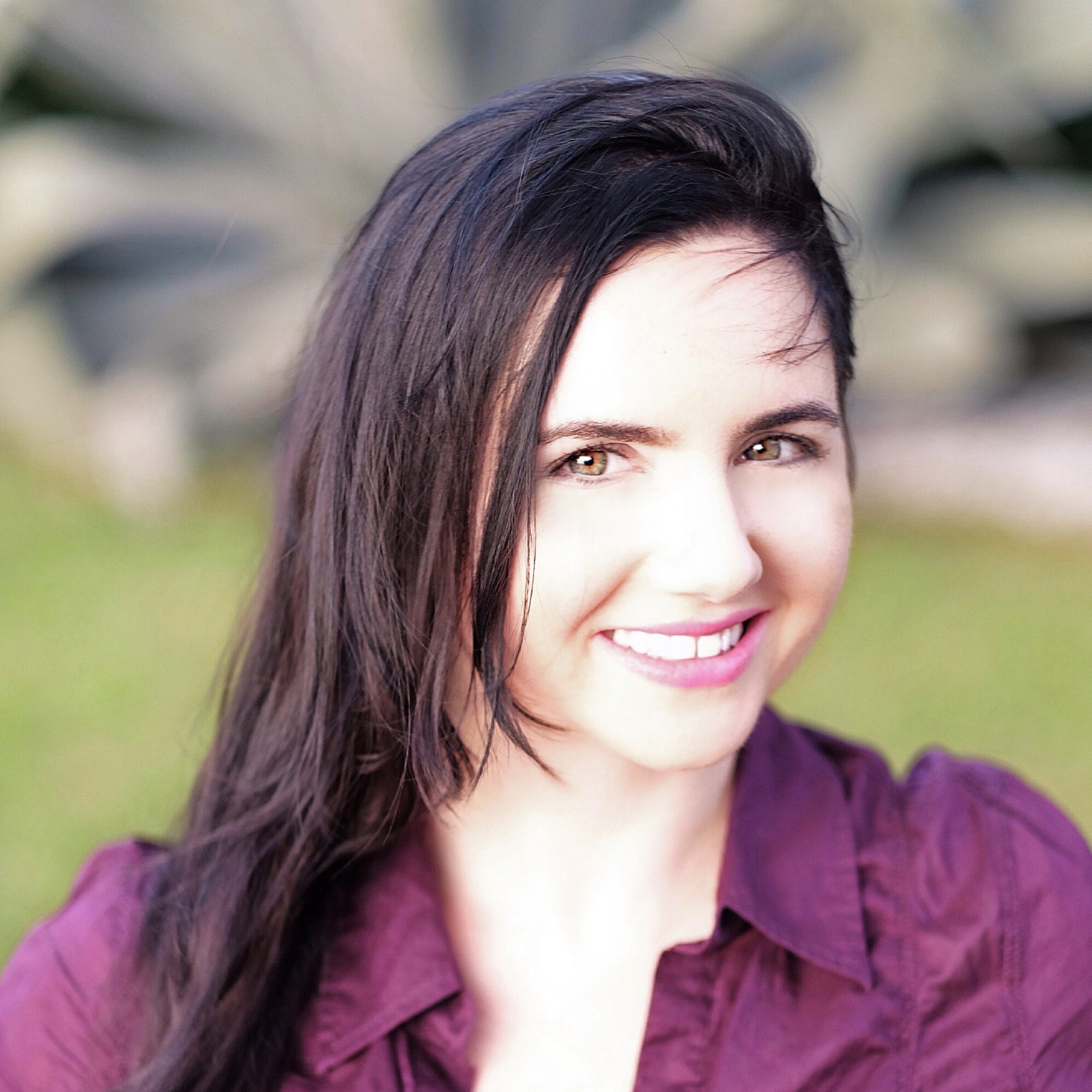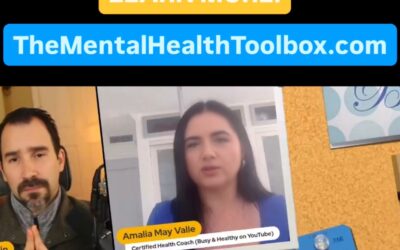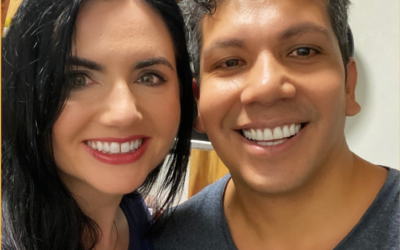Today I’m writing about a very personal share.
I recently went through a miscarriage. At the time that it occurred, I would have been 8 weeks pregnant.
Women rarely talk about miscarriage, and that’s why I’m sharing this.
Sadly, an event so devastating is also surprisingly common. According to the American Pregnancy Association, up to 25% of pregnancies end in miscarriage.
The frequency of miscarriages occurring does not make it any less heartbreaking however. It’s especially devastating for women who have been through multiple miscarriages.
Studies show that 4 out of 10 women who experience a miscarriage suffer from PTSD, even several months after the miscarriage has taken place.
I feel that the lack of public discussion and support around miscarriage may be a contributor to this and – I think it’s incredibly important to adequately grieve such a loss.
I was 8 weeks pregnant when my miscarriage took place. It would have been my second child and I was just beginning to excitedly make plans and order new maternity clothes.
At my 7- week appointment, my doctor had warned that the baby’s heartbeat seemed weak. I was devastated to hear this, as I had only been thinking about the cute ultrasound pictures we would be getting. It hadn’t occurred to me that anything could be wrong.
However, he said that things “could improve in a week” and scheduled me to return the following week.
Over the next week, I convinced myself that my baby was fine. I endlessly Googled and was reassured that yes indeed, the baby’s heartbeat could improve, especially at this early stage. In fact, it was even possible that my conception date was miscalculated and that the baby was a week younger than we thought – that would explain the weaker heartbeat.
I would touch my stomach and ask my baby to be strong. And I really thought that he would be.
However, at my doctor’s appointment, my doctor saw on the ultrasound that my baby’s heart had stopped beating. This is called a “missed miscarriage”, where the baby has died but the body has not been miscarried.
My doctor gave me several options, which I am grateful for.
He first recommended that we wait a week to see if my body would miscarry naturally (spoiler alert: it did).
The next option was a D&C (Dilation & Curettage) – a common recommendation for missed miscarriages, in which the woman is placed under anesthesia and the doctor surgically removes tissue from the uterus, using a spoon-shaped tool called a Curette.
The third option was to take prescription drugs that would “force” the body to miscarry.
First, I felt devastated. And then I was angry.
Although I’m not especially religious, I am spiritual. I couldn’t understand why I would receive this blessing of being pregnant if it was only going to be cruelly taken away.
My sister told me something that greatly comforted me.
In the Jewish tradition, it is believed that in the case of a miscarriage, the baby was a soul that needed to complete just one more task in an earthly body, before being able to move on to the next world. So the woman who miscarries is actually doing a big service to this little soul, helping them to complete their worldly experience.
Hearing this gave so much meaning, and even beauty, to an otherwise heartbreaking event. I believe that this is what also helped me to physical “release” my baby so that I could miscarry naturally (more on this later).
So now I that I knew that my baby was no longer alive, I had to figure out the next steps.
I knew that I wouldn’t be able to grieve completely until the physical miscarriage was over.
My sister, Rivkah, is a nurse practitioner but all three of her own births have been through a midwife. She gave me her midwife’s number and urged me to call her.
Carol, the midwife, was incredibly kind.
After expressing compassion and assuring me that the miscarriage was through no fault of my own, she strongly encouraged me to avoid a D&C procedure.
She told me that doctors usually push for this option (luckily, mine did not push me) because frankly, it’s quite a lucrative procedure for them. She cautioned me that this procedure carries a risk of creating scar tissue in the uterus, which could affect future fertility.
That surprised me, as that is something that my doctor did not mention. Carol urged me to wait for my body to miscarry naturally, even if it took a few weeks. I was not too excited about the idea of waiting a few weeks, but by now I was quite scared about the D & C procedure.
Before hanging up, Carol gave me another piece of advice that proved to be quite helpful. She told me that by emotionally “releasing” my baby’s body, it would help me to naturally miscarry a lot faster. She ended up being quite right about that.
After the call, I did some research. I found that Carol was correct about the D&C carrying a risk of uterine scarring, however it was not a large risk if done by a skilled doctor.
Nonetheless, I wasn’t thrilled about such a risk. Nor was I thrilled about the high price tag of a D&C, something that you also don’t hear mentioned until the bill comes.
I called my insurance for an estimate of the cost (you will need a code for the procedure from your doctor in order to do this) and even though my deductible had already been met, my share of co-insurance for this procedure would be 20% of cost of the procedure.
The insurance representative could not give me an exact amount in advance (which is troubling in and of itself) but from researching average costs, my share of the procedure would end up being somewhere between $1,500-2,500.
And that’s not including costs for the anesthesiologist and possible hospital fees.
So I really didn’t want to go that route.
Next, I read about the pills. After reading several personal accounts of awful pain from these pills, I wasn’t too excited about that either.
As a Health Coach, although I respect the advances of modern Western medicine, I like to look first at more holistic alternatives.
So instead, I looked to acupuncture.
I am a big fan of acupuncture in general, especially for anything to do with balancing female hormones (a place where Western medicine sadly falls very short). So I spoke to my acupuncturist about whether acupuncture could help with this.
Yes, it could. There are precise points in acupuncture that can move blood in the uterus to help it clear out.
My acupuncturist looked incredibly sad when I asked her about this. She said to me,
“It makes me so sad to help you with this, but I will help you with this. But please do one more ultrasound just to confirm once more that there is no heartbeat. Because these acupuncture points will work whether there is a heartbeat or not.”
I agreed that I would get one more ultrasound to confirm, just in case.
As it turns out, I ended up having to cancel my appointment for the second ultrasound. The night before I was supposed to go, just as Carol had suggested, I tried to emotionally “release” my spirit baby. Crying, I touched my uterus and asked my baby to help me release him (for some reason, I had the feeling that this was a male baby).
An hour later, while bathing my daughter, I suddenly felt blood coming out of me, similar to the sensation of a period starting. After that, the bleeding got heavier and heavier. So thankfully, the miscarriage started on its own, without any intervention necessary.
I was extremely sad but also relieved. It felt better to me for this to happen naturally. And it gave me the chance to grieve and find closure. I thanked my spirit baby for helping me to release his body. I prayed for his little soul and asked him to be a guardian angel for our family. My husband and I shared a drink in our baby’s memory (gluten-free beer) and told him that he would always be a part of our family.
And I cried, a lot.
The bleeding continued for many days and then eventually got lighter. I made sure to eat nourishing, iron-rich foods to strengthen my body from the blood loss.
And I took the herb Black Cohosh to help with the circulation of the uterus and to help clear everything out (unfortunately, the uterus doesn’t always clear completely on its own).
Going through times of sadness are a part of life. It’s not easy to experience but I think that ultimately, we will heal faster and stronger if we let ourselves truly grieve and feel all the feelings.
Of course, some losses are much harder than others. I won’t compare my loss to the even deeper losses that some have experienced even further in their into their pregnancies. Or the pain of a woman who deeply wants a child and is unable to get pregnant at all.
I feel incredibly fortunate that I am not going through this alone. I have an incredible and supportive husband and a beautiful, vibrant daughter to comfort me.
I’ve actually had several close friends experience miscarriage. Although I felt compassion for them at the time and expressed my sympathies, I truly had no idea how hard this experience is until it happened to me.
Back in October, after experiencing another type of sadness, I made a video called 5 Strategies to Feel Better During Tough Times . The strategies that I discuss in that video are those that I use when I need to heal and I am using them now as well.
Here are the strategies that I used to heal both during and after my miscarriage:
1. Eating plenty of nourishing, iron-rich foods and taking herbs to support the uterus
The fact is, you lose quite a lot of blood during a miscarriage. This can put you at risk for an iron deficiency, which is no joke. Eating plenty of good quality proteins is essential during this time. Eating organic eggs, chicken and grassfed beef is great but if you’re Vegan or Vegetarian, be sure to have tons of plant-based proteins such as lentils, chickpeas and black beans.
Drinking a lot of liquids is also vital. A wonderful tea that can support and heal your uterus at this time is Red Raspberry Leaf tea, an old remedy that is still recommended by midwives. There are also herbs such as Black Cohosh, which I used, which can help your uterus to release the miscarriage and heal. Do use caution when using Black Cohosh. If using, you must not use it for more than 10 days (unless your provider says otherwise), as it can effect your liver if used long-term. Midwives are usually quite experienced with this herb and can be a great resource at this time.
The amazing Aviva Romm, a highly experienced Midwife and M.D., wrote this excellent article on herbs and caring for yourself during a miscarriage.
2. Finding meaningful ways to honor the memory of your lost baby
Everyone will have a different need and approach to this. But if you are grieving (and it’s ok if you aren’t – some of us feel that connection only after giving birth) then doing something to honor the baby’s memory will help so much. I made a playlist in honor of my baby and played it constantly. I prayed to my guardian angels (yes I do believe in them!) to watch over my baby’s soul. And my husband and I shared a drink at home (gluten-free beer) in honor of his memory. We made a toast in his honor and told him that he would always be a part of our family. It helped. It felt meaningful and that’s what I really needed at this time.
3. Movement and Music
One of my most important methods of emotional healing is movement. I don’t necessarily mean working out, although that is totally fine too. I like to put on music that reflects the way that I feel and I usually do sequences of yoga sun salutations with it – or whatever other spontaneous movement that might come about as I feel the music.
As I mentioned, I made a playlist to honor my spirit baby’s memory.
I included songs that resonated with the different ways that I was feeling. I would either listen to it or dance to it, depending on how I was feeling at the moment. I will post the playist below in case it’s helpful. Remember though, these are songs that resonated with me, they may not all feel right for the way that you might be feeling.
The idea of dance as a form of psychotherapy was first presented by famed psychologist Carl Jung. However, dance has been used by Shamanic cultures as a form of healing since way back to the Neolithic period.
Dance has historically been used in ancient cultures all over the world to both celebrate and mourn life milestones and transitions. The mourning dance rituals still practiced by the Yolngu tribe in Australia have been well documented . You don’t have to be a great dancer to use dance as a form of therapy. This is something private, just for you.
My Playlist:
Joga – Björk
That I Would Be Good – Alanis Morrisette
I See You (Theme from Avatar)
It Must Have Been Love – Roxette
Fading Like a Flower – Roxette
Falling Slowly – Glen Hansard, from the film “Once”
Sad Day – FKA Twigs
Without You – from the Broadway show “Rent”
Dreaming My Dreams – The Cranberries
Ode to My Family – The Cranberries
Skinny Love – Bon Iver
Hurricane – Eden Golan
Hoppipolla – Sigur Ros
Daffodil Lament – The Cranberries
No Need to Argue – The Cranberries
If someone you know is going through a miscarriage, please consider sharing this post with them. Women very much need more support at this time and we all need to talk about this more.
Wishing you health and healing energy,
Amalia




0 Comments